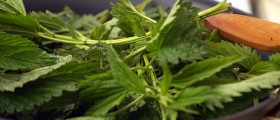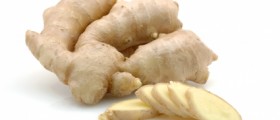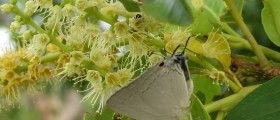
About Yarrow
Yarrow is a straight plant, up to 80 cm high. Stem color is light green or red brown. It has plenty of frond-like leaves. The whole plant has a very pleasant smell. Many small leaves are either white or purple-red. The flowers are collected in bloom at the top of the stem. It grows everywhere – near the roads and over the fields in the continental climate as a wild plant.Above-ground part of the flowering plant has up to one percent of essential oil (pharmacopeia requires at least 0.13%), flavonoids, vitamin K, bitter substance - ahilein, resins, tannins, etc. Yarrow essential oil obtains by steam distillation and contains pinene, cineole, thujone, camphor, limonene and borneol.
The plant is widespread throughout whole Europe. It grows singly or in large groups over meadows and pastures.
During the blooming pick flowers with a short stem, and the whole plant up to 30 cm in height. Due to the high content of bitter substances and essential oils, yarrow is classified among the bitter remedies.
Health Benefits
Yarrow is used as a tea to improve the appetite, relieve the stomach problems such as bloating and poor digestion.In traditional medicine yarrow is used for healing wounds and mitigating pain.
Yarrow was integrated into bitter teas, teas for cleansing, increasing bile secretion, normalization of metabolism and sedation. Externally it is used as antiphlogistic like chamomile, for rinsing, baths and compresses.
Due to the presence of vitamin C, yarrow is very useful in the case of bleeding and hemorrhoids.
Using yarrow in sensitive people may cause allergy. So people with sensitive skin should use only the young, new-blown plants, and to drink tea in small quantities.
Yarrow cleans and strengthens the blood and organs of the digestive tract. It is particularly useful for the treatment of liver and spleen diseases, heartburn, jaundice and the catarrhs and cramps in the intestines and stomach.
This plant is also very helpful in treating blood rush to the head, fever, heart palpitations, pain in the lumbar and back, irregular menstruation, bloody and closed blisters, insomnia, various rashes and ulcers.
Yarrow tea has beneficial effect in treating chapped skin of hands, vulnerable nipples in breastfeeding mothers and psoriasis. Psoriasis, besides compresses require yarrow blood cleaning therapy.
Yarrow is also used for angina pectoris in the form of tea.
For people with nerve disorders is advisable to wash the entire body with lukewarm yarrow tea in the morning and evening. Warm baths, made of yarrow and chamomile, relieve the nerve pain. Yarrow reduces the problems caused by gout and rheumatism.
This herb is very effective for treating diabetes, especially in its initial stage.
Due to its bitter taste, yarrow encourages the secretion of gastric juice and therefore increases appetite. Also, it beneficially effects on the absorption of food. Medicinal preparations containing yarrow help in relieving symptoms of gastritis, colitis and cramps in the stomach and intestines.
Potassium, which is contained in yarrow, helps in the kidneys, and circulatory system functioning, thus indirectly positively affects the heart.

















Your thoughts on this
Loading...